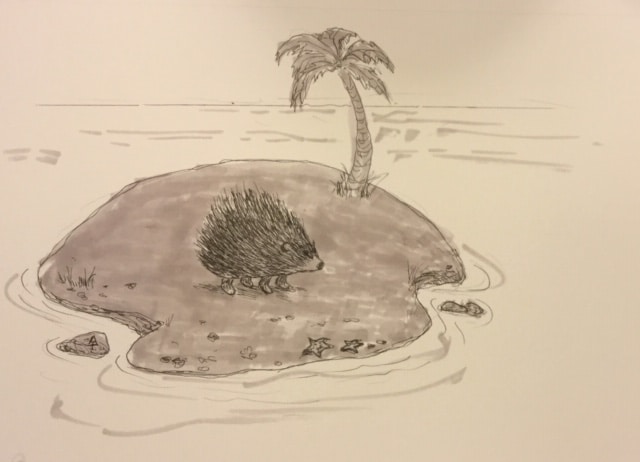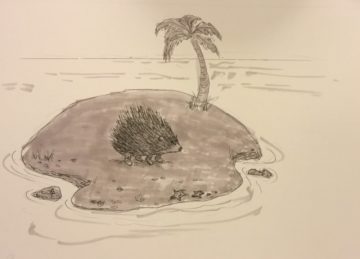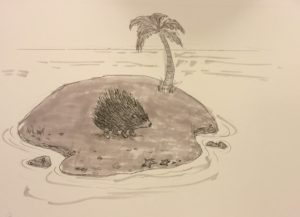What do porcupines, islands and congregations have in common? Consider the following fable and poem.
“A number of porcupines huddled together for warmth on a cold day in winter, but, as they began to prick one another with their quills, they were obliged to disperse. However the cold drove them together again, when just the same thing happened. At last, after many turns of huddling and dispersing, they discovered that they would be best off by remaining at a little distance from one another. In the same way the need of society drives the human porcupines together, only to be mutually repelled by the many prickly and disagreeable qualities of their nature. The moderate distance which they at last discover to be the only tolerable condition of intercourse, is the code of politeness and fine manners; and those who transgress it are roughly told—in the English phrase—to keep their distance. By this arrangement the mutual need of warmth is only very moderately satisfied; but then people do not get pricked. A man who has some heat in himself prefers to remain outside, where he will neither prick other people nor get pricked himself.” ― Arthur Schopenhauer, Parerga and Paralipomena (1851).
‘No Man Is an Island’ by John Donne, 1624
No man is an island entire of itself;
every man is a piece of the continent, a part of the main;
if a clod be washed away by the sea, Europe is the less,
as well as if a promontory were,
as well as any manner of thy friends or of thine own were;
any man’s death diminishes me,
because I am involved in mankind.
And therefore never send to know for whom
the bell tolls; it tolls for thee.
At first glance these might seem on divergent wavelengths. However if we liken each to a congregational experience we might find a common frequency. Is there a predictable ebb and flow of congregational unity? Is it a factor of the General or local leadership, the membership or perhaps the times? Are there prickly quills that stab or trigger us in unpleasant ways? Why are some wards able to blunt the quills and create warm, loving, open unity?
Can we reimagine John Donne’s poem and apply it to losing an individual to inactivity rather than death. Is a ward diminished by the loss of its members? I think so. Yet, people leave and people stay in an accordion-like fashion. Donne says “any man’s death diminishes me.” Does the loss of any member diminish us all? I hope so. I hope it spurs us to activity, but not as we might think.
Over years of activity at church, I have participated in outreach efforts to members and nonmembers alike, inviting them to come to (or return to) church. These efforts have been called missionary outreach, re-activation, rescue, fellowship and now ministering. I suppose I have been on a list from time to time myself.
As we hasten to the rescue are we ignoring the elephant in the room, a.k.a. the prickly quills? Wouldn’t it help to understand the “why” of island making and withdrawal?
What is the heat that a person possesses that encourages them to step away completely?
Is there a sweet-spot for you?
Are there quills that poke your safe space at church?
Would it help to explore them and would you be willing to talk about it?
Would the people listen who could make a difference?
Maureen lives in Maryland where she turns quills into knitting needles







3 Responses
I feel like am a porcupine! I need some space, and efforts to push and control me make me want out. At the same time, I do appreciate the warmth of fellowship. I like it when people reach out. Just not to the p point of pushiness.
I really feel like it’s a delicate balance of both for me. Separation and a bit of quiet space is sometimes so needed, but I’m also not an island. I want the connection and safety and comfort of others, but sometimes it’s such a delicate process to be in really close proximity to others because we all have our prickly quills – and sometimes these help us protect ourselves.
Sometimes I feel poked, and sometimes I think I do a bit of poking. This is a good reminder for me to lead with love and warmth. Thank you!